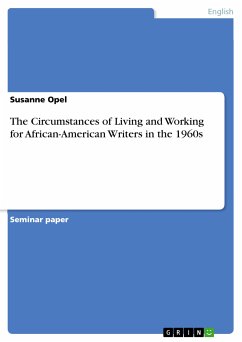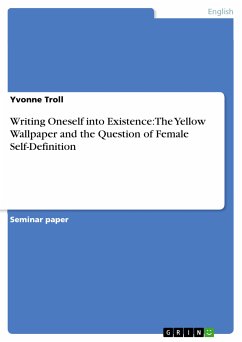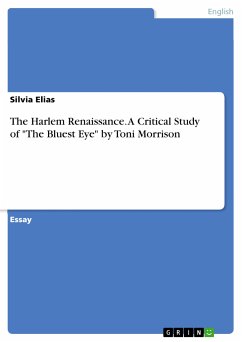Seminar paper from the year 2004 in the subject American Studies - Literature, grade: 2,3, University of Rostock, language: English, abstract: The 1960s were a decade of changes for everyone in the USA. The Civil Rights Movement was at its height, while the assassinations of important personalities such as John F. Kennedy and Malcolm X, as well as Vietnam and the Cold War overshadowed the lives and thoughts of a whole generation. Hippie Culture, the anti-war movement, and the sexual revolution created a whole new generation with a new set of values. For the arts, for culture, and for the sciences the 1960s were a period of new developments that influenced the following decades immensely: the Beatles, worldwide TV shows, or the first man on the moon, just to name a few. Compared to their peers of periods, adolescents and unmarried young adults of the 1960s enjoyed greater social freedom and mobility and also were less tolerant of the socio-political subjugation of black people. The 1960s were also the decade in which African-American literature reached a new climax after the Harlem Renaissance in the twenties. There were a lot of new possibilities for African-Americans, but still also a lot to fight for. Being an African-American writer was a constant struggle, not only to earn money to survive , but also to gain the same acceptance as a white writer, or to help change something for the other African-Americans. Chester Himes wrote in his essay Dilemma of the Negro Novelist in U.S. (1966): From the start the American Negro writer is beset by conflicts. He is in conflict with himself, with his environment, with his public. The personal conflict will be the hardest. He must decide at the outset the extent of his honesty. He will find it no easy thing to reveal the truth of his experience or even to discover it. He will derive no please from the recounting of his hurts. He will encounter more agony by his explorations into his own personality than most non-Negroes realize. For him to delineate the degrading effects of oppression will be like inflicting a wound upon himself. He will have begun an intellectual crusade that will take him through the horrors of the damned. And this must be his reward for his integrity: he will be reviled by the Negroes and whites alike. Most of all, he will find no valid interpretation of his experiences in terms of human values until the truth be known. If he does not discover this truth, his life will be forever veiled in mystery, not only to whites, but to himself; and he will be heir to all the weird interpretations of his personality.
Bitte wählen Sie Ihr Anliegen aus.
Rechnungen
Retourenschein anfordern
Bestellstatus
Storno









